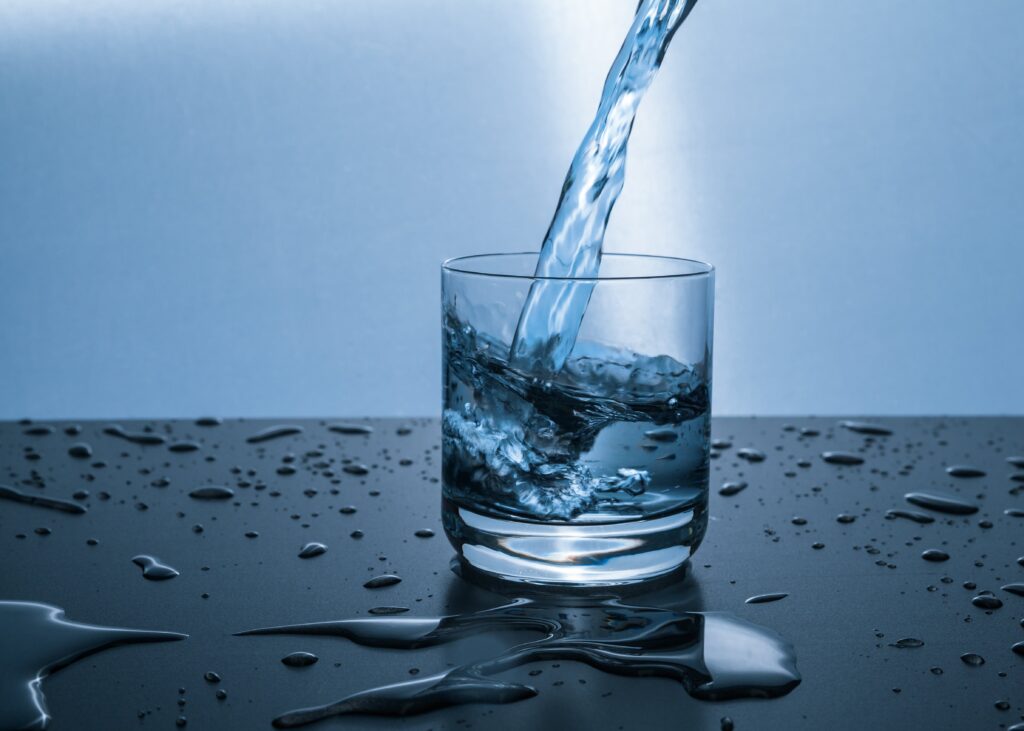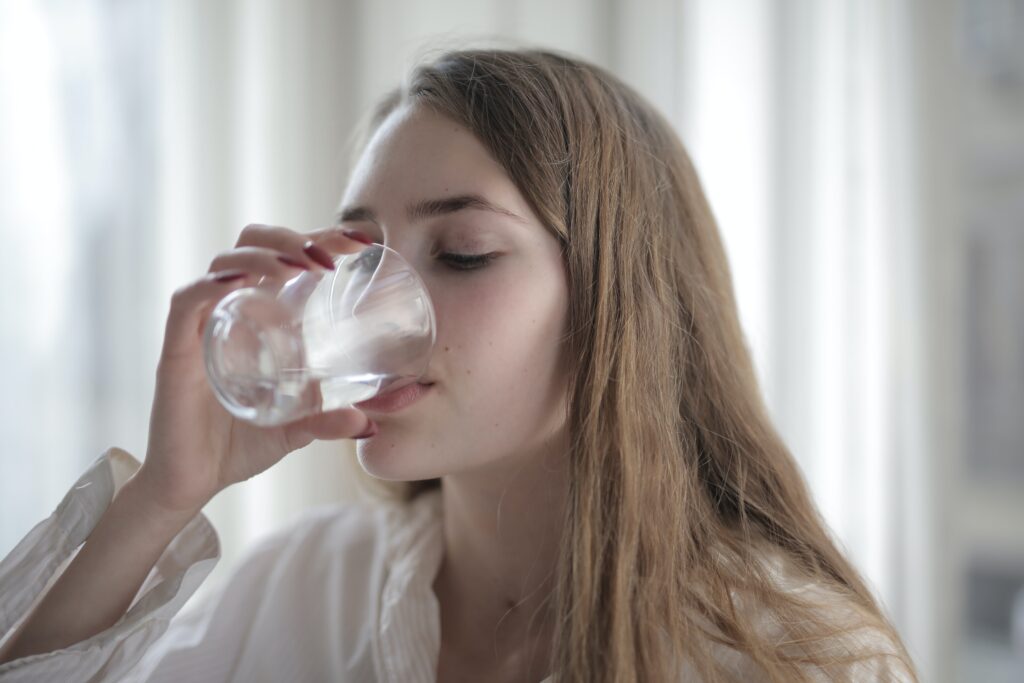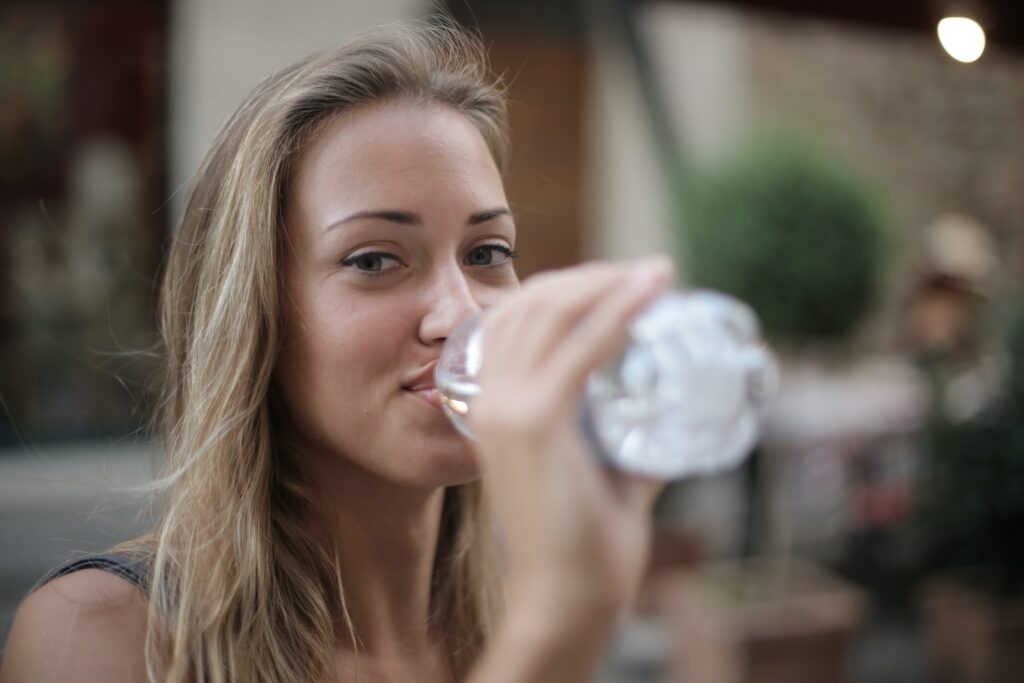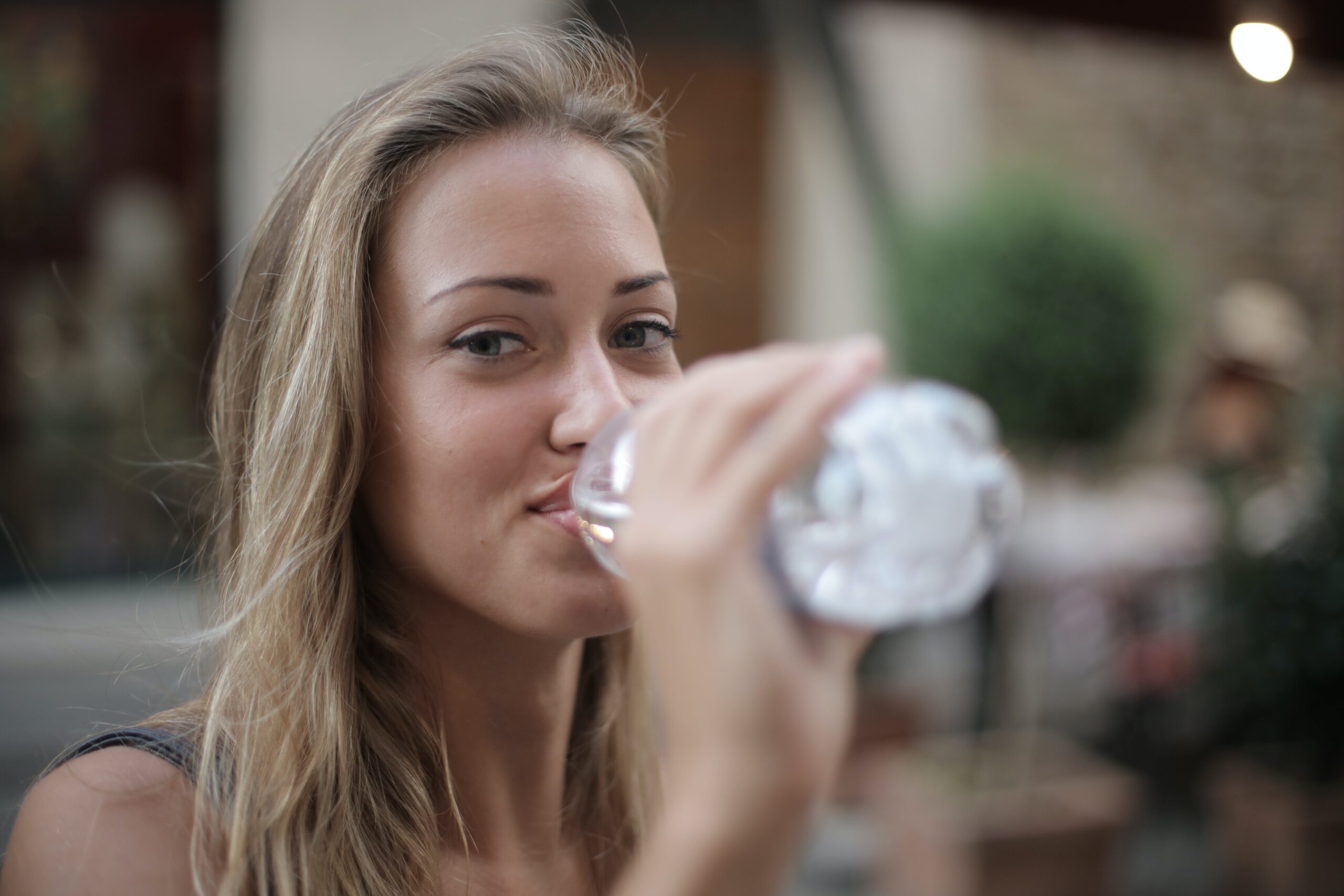Have you ever wondered how much water you should be drinking each day to maintain optimal health? It’s a question that often pops into people’s minds, especially when trying to lead a healthier lifestyle. With so many theories and advice floating around, it can be confusing to determine the right amount. In this article, we will explore the recommended daily intake of water for optimal health, helping you understand how much water your body truly needs to stay hydrated and functioning at its best.

Importance of Hydration
Hydration for overall health
Hydration is essential for maintaining overall health and well-being. Your body relies on water to carry out numerous vital functions, including regulating body temperature, lubricating joints, and aiding in digestion. In fact, water plays a crucial role in nearly every bodily function, which is why staying properly hydrated is so important.
Benefits of proper hydration
Proper hydration offers a wide range of benefits for your body. Not only does it improve physical performance and endurance, but it also helps boost your cognitive function, mood, and focus. Additionally, staying hydrated promotes healthy skin by keeping it moisturized and can even aid in weight management by reducing appetite and boosting metabolism.
Effects of dehydration
On the other hand, dehydration can have serious negative effects on your health. Even mild dehydration can lead to feelings of fatigue, dizziness, and headaches. When your body lacks sufficient water, it can also impair cognitive function, cause muscle cramps, and even lead to heat exhaustion or heatstroke in extreme cases. Therefore, it is crucial to be aware of the signs of dehydration and take proactive steps to maintain adequate hydration.
Factors Affecting Water Intake
Gender
Your gender can influence your water intake needs. Generally, men tend to have higher water requirements than women due to differences in body composition and metabolism. Men typically have more muscle mass, which requires more water for proper hydration.
Age
Age is another important factor that affects your water intake. Infants and children have higher water needs relative to their body weight compared to adults. As you age, your body’s ability to conserve water may decrease, making it even more important to pay attention to your hydration levels.
Physical activity level
Your physical activity level also plays a significant role in determining how much water you should drink. When you engage in intense exercise or strenuous activities that cause you to sweat, you lose more water through sweat and require more fluids to replenish what’s lost. It is crucial to drink water before, during, and after exercise to maintain optimal hydration.
Climate and environment
The climate and environment you are in can impact your water intake needs. Hot weather, high humidity, and altitude can all increase your risk of dehydration. In such conditions, you may need to drink more water to compensate for the increased fluid loss through sweating.
Pregnancy and breastfeeding
Pregnant and breastfeeding women have unique water intake needs. During pregnancy, a woman’s body undergoes numerous changes, and adequate hydration is essential for both the mother and the developing baby. Similarly, breastfeeding moms need to drink more water to ensure an adequate milk supply for their infants.
Medical conditions and medications
Certain medical conditions and medications can affect your water intake requirements. For example, if you have a fever, vomiting, or diarrhea, you may need to increase your fluid intake to prevent dehydration. Some medications, such as diuretics, can also increase urine production and require you to drink more water.
Recommended Daily Water Intake
General guidelines
While specific water intake varies across individuals, a general guideline is to drink at least eight 8-ounce glasses of water per day, commonly known as the “8×8 rule.” This equates to about 2 liters or half a gallon. However, individual needs may vary based on factors such as age, gender, and activity level.
Influence of body weight
Another common way to estimate water intake is by considering body weight. As a general rule, aim to drink around 0.5 to 1 ounce of water per pound of body weight. For example, if you weigh 150 pounds, you should aim to drink 75 to 150 ounces (approximately 2.2 to 4.4 liters) of water per day.
Water needs for athletes
Athletes and individuals who engage in intense exercise should pay special attention to their hydration needs. The American College of Sports Medicine recommends drinking about 16 to 20 ounces (approximately 500 to 600 milliliters) of water 2 to 3 hours before exercise, followed by 8 to 10 ounces (240 to 300 milliliters) of water every 10 to 20 minutes during exercise.
Water needs during pregnancy and breastfeeding
During pregnancy, it is essential to drink additional fluids to support the increased blood volume and amniotic fluid. The American College of Obstetricians and Gynecologists recommends pregnant women aim for about 10 cups (2.3 liters) of fluid per day from all sources. Similarly, breastfeeding women should aim for about 13 cups (3.1 liters) of fluid per day.
Water requirements for older adults
As you age, your body’s ability to retain water decreases, and older adults may be at higher risk of dehydration. It is recommended for older adults to aim for about 8 to 9 cups (approximately 1.9 to 2.1 liters) of water per day, but individual needs may vary based on health conditions and medications.
Adjusting water intake based on climate and environment
In hot and humid climates or at high altitudes, your body loses more water through sweat and respiration. To compensate, it is crucial to increase your water intake accordingly. Pay attention to your body’s signals and ensure you are drinking enough water to stay adequately hydrated in these conditions.
Signs of Dehydration
Thirst
Feeling thirsty is your body’s way of indicating that it needs more water. While thirst is not always the most reliable indicator of dehydration, it is important to listen to your body and drink water when you feel thirsty.
Dark or infrequent urine
Urine color and frequency can provide valuable insights into your hydration status. Dark or concentrated urine may be a sign that you are not drinking enough water. On the other hand, light-colored and frequent urination can be an indication of proper hydration.
Dry mouth and lips
Dry mouth and lips are common signs of dehydration. When your body lacks sufficient water, it affects your saliva production, leading to dryness in your mouth and lips.
Fatigue and dizziness
Dehydration can cause feelings of fatigue and dizziness. When your body doesn’t have enough fluid, it affects your blood volume, making it harder for oxygen and nutrients to be transported efficiently throughout your body.
Headaches
Headaches can be a symptom of dehydration. Research suggests that even mild dehydration can trigger headaches and impair cognitive function.
Muscle cramps
Muscle cramps are another potential sign of dehydration. When your body lacks fluids and electrolytes, it can lead to muscle spasms and cramping.
Dry skin
Proper hydration is essential for maintaining healthy skin, and dehydration can contribute to dryness and flakiness. If your skin feels dry, it may be an indication that you need to increase your water intake.

Best Sources of Hydration
Drinking water
Drinking plain water is one of the best and most accessible sources of hydration. It is calorie-free, refreshing, and essential for maintaining optimal hydration levels.
Fruits and vegetables
Many fruits and vegetables have a high water content, making them great sources of hydration. Watermelon, cucumbers, strawberries, and spinach are examples of hydrating foods that can contribute to your overall fluid intake.
Herbal teas and infused water
Herbal teas and infused water can be flavorful alternatives to plain water. They provide hydration while adding natural flavors and potentially beneficial compounds from herbs, fruits, or vegetables.
Soups and broths
Soups and broths can be excellent sources of hydration, especially during colder months. They not only provide fluids but also contain electrolytes and nutrients that can aid in replenishing your body.
Milk and plant-based alternatives
Milk and plant-based milk alternatives, such as almond milk or coconut milk, can also contribute to your daily hydration. They are not only hydrating but also provide valuable nutrients like calcium and vitamin D.
Limiting sugary and caffeinated beverages
While certain beverages like soda, energy drinks, and caffeinated beverages can contribute to your overall fluid intake, it is important to limit their consumption. These drinks can have diuretic effects and may not be as hydrating as water or other healthier alternatives.
Water vs Other Beverages
Effects of sugary and caffeinated drinks on hydration
Sugary and caffeinated drinks can have negative effects on hydration. They can act as diuretics, increasing urine production and potentially leading to fluid loss. Additionally, excessive sugar consumption can have detrimental health effects. It is best to prioritize water and healthier beverage choices for optimal hydration.
Alcohol and its impact on water balance
Alcohol consumption can disrupt your body’s water balance. Alcohol is a diuretic, meaning it increases urine production and leads to dehydration. It is vital to drink water alongside alcoholic beverages and moderate your alcohol intake to avoid dehydration.
Hydration efficacy of sports drinks and electrolyte-enhanced water
Sports drinks and electrolyte-enhanced water can be beneficial for individuals engaging in prolonged or intense exercise. These beverages typically contain electrolytes like sodium and potassium, which are lost through sweat. However, for regular hydration purposes, plain water is generally sufficient and more accessible.

Factors to Consider
Individual hydration needs
Each person has unique hydration needs based on their body composition, activity level, and overall health. It is important to listen to your body’s cues and adjust your water intake accordingly.
Specific health conditions
Certain health conditions may require you to pay closer attention to your hydration. For example, if you have kidney stones or urinary tract infections, increased fluid intake can be beneficial. Consult with your healthcare professional if you have specific health concerns.
Climate and temperature
Hot and humid climates or high altitudes can increase your fluid loss through sweat and respiration. In these conditions, it is crucial to drink more water and stay hydrated to prevent dehydration.
Physical activity level
Engaging in physical activity increases your water needs due to increased sweating. Make sure to drink water before, during, and after exercise to maintain optimal hydration levels.
Thirst as an indicator
While thirst is an important indicator to drink water, it is not always the most reliable one for determining hydration status. By the time you feel thirsty, you may already be mildly dehydrated. Therefore, it is recommended to drink water throughout the day even if you don’t feel particularly thirsty.
Monitoring urine color
Monitoring the color of your urine can give you insights into your hydration status. Light-colored or clear urine generally indicates proper hydration, while dark or concentrated urine may be a sign of dehydration.
Tips for Staying Hydrated
Carrying a water bottle
Carry a reusable water bottle with you throughout the day to make it easier to drink water. Having a bottle readily available will serve as a reminder to stay hydrated.
Setting reminders
Set reminders on your phone or use hydration apps to remind you to drink water at regular intervals. This can be especially helpful if you tend to forget or get caught up in daily activities.
Tracking water intake
Keep track of your water intake to ensure you are meeting your daily hydration goals. Use a journal, a smartphone app, or one of the many online tools available to monitor your water intake.
Adding flavor to water
If you find plain water boring, try adding natural flavors like lemon, cucumber, or mint to enhance the taste. You can also use flavor essences or sugar-free drink mixes. Just be mindful of the added calories or artificial ingredients if you choose to go this route.
Eating water-rich foods
Incorporate more water-rich foods into your diet to increase your overall fluid intake. Fruits and vegetables like watermelon, oranges, cucumbers, and lettuce are excellent choices.
Creating a hydration routine
Developing a hydration routine can help you stay consistent with your water intake. Set specific times throughout the day to drink water, such as when you wake up, before meals, and before bedtime.
Water Intake Myths
8 cups of water a day myth
The notion that you must drink eight 8-ounce glasses of water per day is a popular myth that lacks scientific evidence. While it can serve as a general guideline, individual needs may vary based on factors such as activity level, climate, and overall health.
Clear urine is always a sign of proper hydration myth
While clear urine can indicate proper hydration, it is not always a definitive indicator. Factors like certain medications, vitamin supplements, and certain health conditions can influence urine color. Aim for a pale yellow color as a general target for hydration.
Excessive water consumption for weight loss myth
Drinking excessive amounts of water will not lead to significant weight loss. While staying properly hydrated can support weight management by promoting healthier eating habits and boosting metabolism, it should be complemented with a balanced diet and regular exercise.
Conclusion
Water is an essential component of maintaining optimal health and well-being. Your hydration needs can vary based on factors such as age, gender, activity level, and climate. Staying properly hydrated offers numerous benefits, while dehydration can have serious negative effects on your body and performance. By understanding the factors influencing your water intake, recognizing the signs of dehydration, and incorporating healthy hydration habits into your daily routine, you can ensure that you stay adequately hydrated. Remember, if you have specific health concerns or conditions, it is always a good idea to consult with your healthcare professional for personalized guidance on hydration.
